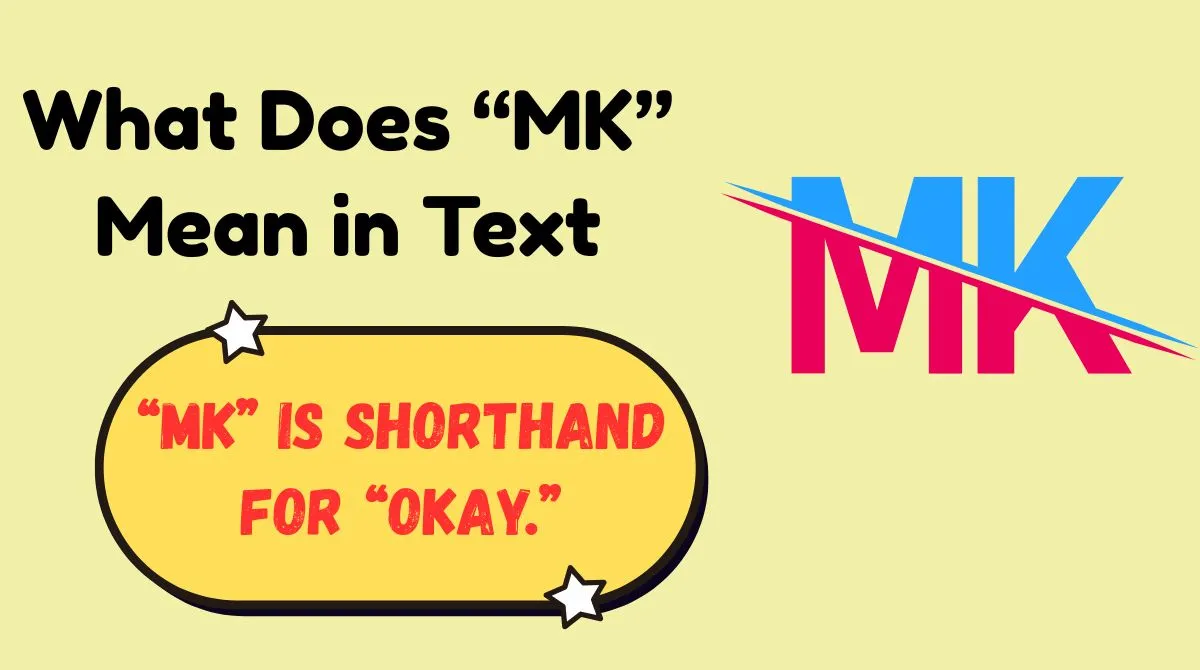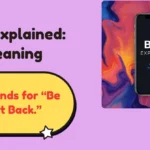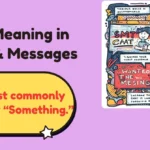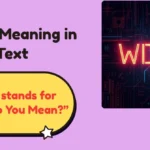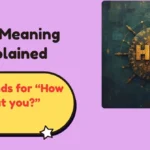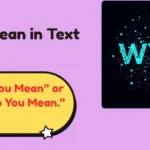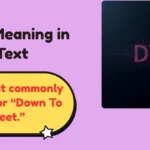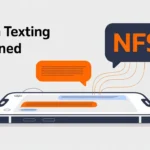Texting has transformed the way we communicate. Shortcuts, abbreviations, and emojis dominate conversations, often leaving people wondering what certain expressions really mean.
One abbreviation that sparks a lot of debate is “MK.”
Is it just another way of saying “okay,” or does it carry a hidden tone? Can it sound rude? And should you use it at work?
This guide breaks everything down. By the end, you’ll not only know what “MK” means in text but also how to use it wisely, when to avoid it, and the best alternatives for different situations.
What Does “MK” Mean in Text?
At its core, “MK” is shorthand for “Okay.”
People often type it when they want to acknowledge something quickly without typing out the full word. It’s casual, short, and easy to send.
But here’s the twist: “MK” doesn’t always feel the same as “Okay” or “Ok.”
- “Ok” → Neutral, widely accepted.
- “Okay” → Softer, more polite.
- “K” → Can feel curt or dismissive.
- “MK” → Somewhere in between: casual acknowledgment but often read as detached.
Example:
- Friend: “Let’s meet at 7.”
- You: “MK.”
Here, it works as a quick confirmation. But depending on tone, the same “MK” could sound like you’re not really interested.
The Tone of “MK”: Why Context Matters
The tricky part with “MK” is tone. Unlike in-person conversations, texting removes voice inflection, facial expressions, and body language. That means the receiver has to guess your tone.
Friendly Use
- Sent with a smiley: “MK 😊”
- Paired with excitement: “MK, can’t wait!”
Dismissive Use
- One-word reply: “MK.”
- Ends a heated chat: “Fine, MK.”
Why punctuation matters
- “MK.” with a period feels cold.
- “MK!!” feels enthusiastic.
- “MK…” can feel uncertain.
👉 Context is everything. What sounds chill in one conversation might come across as rude in another.
Is “MK” Considered Rude?
Some people definitely take “MK” as dismissive. Why? Because it can look like the texter isn’t putting effort into the conversation.
Generational Differences
- Gen Z: More likely to use “MK” casually without meaning harm.
- Millennials: Often interpret it as passive-aggressive.
- Older texters: May not use it at all and can misread it as sarcastic.
Situations Where It Feels Rude
- When ending an argument.
- When replying to a long message with just “MK.”
- When used in professional settings.
Quote from digital etiquette experts:
“It’s not just the word — it’s the effort behind the word that sets the tone. A short reply like ‘MK’ can easily feel like you don’t care, even if you didn’t mean it that way.”
Other Meanings of “MK” (Beyond Just “Okay”)
While texting “MK” almost always means “Okay,” the abbreviation pops up in other contexts too.
| Acronym | Meaning | Context |
|---|---|---|
| MK | Mortal Kombat | Gaming |
| MK | Michael Kors | Fashion/brand |
| MK | Mark (MK-2, MK-5) | Military & weapons |
| MK | Missionary Kid | Religious context |
| MK | Mario Kart | Gaming |
👉 This matters because sometimes “MK” isn’t about texting at all. But unless you’re talking about brands, games, or the military, people usually assume it just means “Okay.”
Polite & Professional Alternatives to “MK”
In workplaces or formal chats, “MK” can easily sound unprofessional. Instead, try clear and polite alternatives.
Examples:
- “Sure, that works for me.”
- “Okay, sounds good!”
- “Got it, thanks!”
- “Understood, let’s move forward.”
- “Alright, I’ll be there.”
Case Study:
Emily, a project manager, once replied with “MK” to her boss confirming a meeting. Her boss thought she sounded annoyed. She later switched to “Got it, thanks!” and noticed her messages were received more positively.
Casual & Friendly Alternatives to “MK”
With friends or family, you want to sound approachable but still engaged. Here’s how:
- “Yep, cool with me.”
- “Kk!”
- “Okayy 😊”
- “No problem at all!”
- “Okay, let’s do it!”
These keep the conversation lighthearted and avoid the flat, robotic tone that “MK” sometimes carries.
How to Choose the Right Response Instead of “MK”
When deciding whether to type “MK” or an alternative, ask yourself three quick questions:
- Who are you texting?
- Boss or colleague? Go formal.
- Friend or sibling? Casual is fine.
- What’s the tone of the conversation?
- Serious? Avoid “MK.”
- Playful? It might work.
- What do you want to communicate?
- Agreement? “Sounds good.”
- Excitement? “Awesome, can’t wait!”
- Neutral? “Okay.”
👉 Think of it like dressing for the occasion — your words should match the situation.
15 Best Ways to Respond Instead of Saying “MK”
Here’s a bigger toolbox of options you can pull from depending on context:
Polite/Professional:
- “Sure, I’ll take care of it.”
- “Understood, I’ll follow up.”
- “Alright, I’ll join the call.”
- “Got it, thanks for letting me know.”
- “Sounds good, I’ll be ready.”
Friendly/Casual:
- “Cool, let’s go!”
- “Yep, works for me.”
- “Okayy, I’m in 🙌”
- “Kk, see you soon!”
- “Alright, no worries!”
Excited/Supportive:
- “Perfect, can’t wait!”
- “Awesome, let’s make it happen.”
- “Great, I’ll be there.”
- “Yes! Love that idea.”
- “Sweet, I’m down.”
This variety lets you tailor your tone so nothing gets lost in translation.
Tips for Using Alternatives Effectively
It’s not just what you say, but how you say it.
- Match the tone: If someone is professional, mirror it. If they’re casual, loosen up.
- Don’t overuse emojis: A well-placed 😊 softens tone, but too many look immature.
- Add enthusiasm when needed: “Got it, thanks!” feels warmer than just “Got it.”
- Be concise but clear: Avoid one-word replies when clarity matters.
When to Avoid “MK” Altogether
Sometimes, using “MK” is simply the wrong move.
- Serious conversations: If someone’s opening up emotionally, “MK” looks dismissive.
- Professional exchanges: With bosses, clients, or teachers, it risks misunderstanding.
- First impressions: If you’re texting someone new, you don’t want to come off as cold.
👉 Think of “MK” like texting shorthand that works with friends but not with everyone.
Quick Summary: What Does “MK” Mean in Text?
- Meaning: Usually stands for “Okay.”
- Tone: Can be friendly or rude depending on context.
- Other meanings: Mortal Kombat, Michael Kors, Mario Kart, etc.
- Safer alternatives: Use “Sounds good,” “Got it,” or “Okayy 😊.”
- Rule of thumb: When in doubt, skip “MK” and use a clearer response.
FAQs
What does MK mean in text?
MK usually means “Okay” in texting. It’s a quick way to acknowledge or agree, though tone depends on context.
Is MK considered rude?
Sometimes. If used in serious chats or with a period (MK.), it can sound dismissive. In casual settings, it’s often harmless.
What’s the difference between K, OK, and MK?
- K = very short, often curt.
- OK = neutral, common.
- MK = casual but can feel detached depending on tone.
Can I use MK in professional messages?
It’s better not to. In work or formal texts, use clearer phrases like “Got it, thanks” or “Understood” to avoid confusion.
What are casual alternatives to MK?
Try “Kk,” “Yep, cool,” or “Okayy 😊” to keep things light and friendly without sounding cold.
When should I avoid saying MK?
Avoid it in serious, emotional, or professional conversations. Use more thoughtful alternatives to keep the tone respectful.
Conclusion
Language evolves, and texting has created a new set of unspoken rules. “MK” in text is one of those tricky abbreviations — harmless in some chats, but easily misunderstood in others.
The key takeaway? Tone matters more than the word itself.
If you want to avoid miscommunication:
- Use clear alternatives in professional or serious conversations.
- Save “MK” for casual chats where you know it’ll be understood.
- Remember: one extra word often makes your message sound warmer.
So next time you’re tempted to type “MK,” ask yourself — is this the tone I want to send? If not, now you’ve got plenty of better choices.
